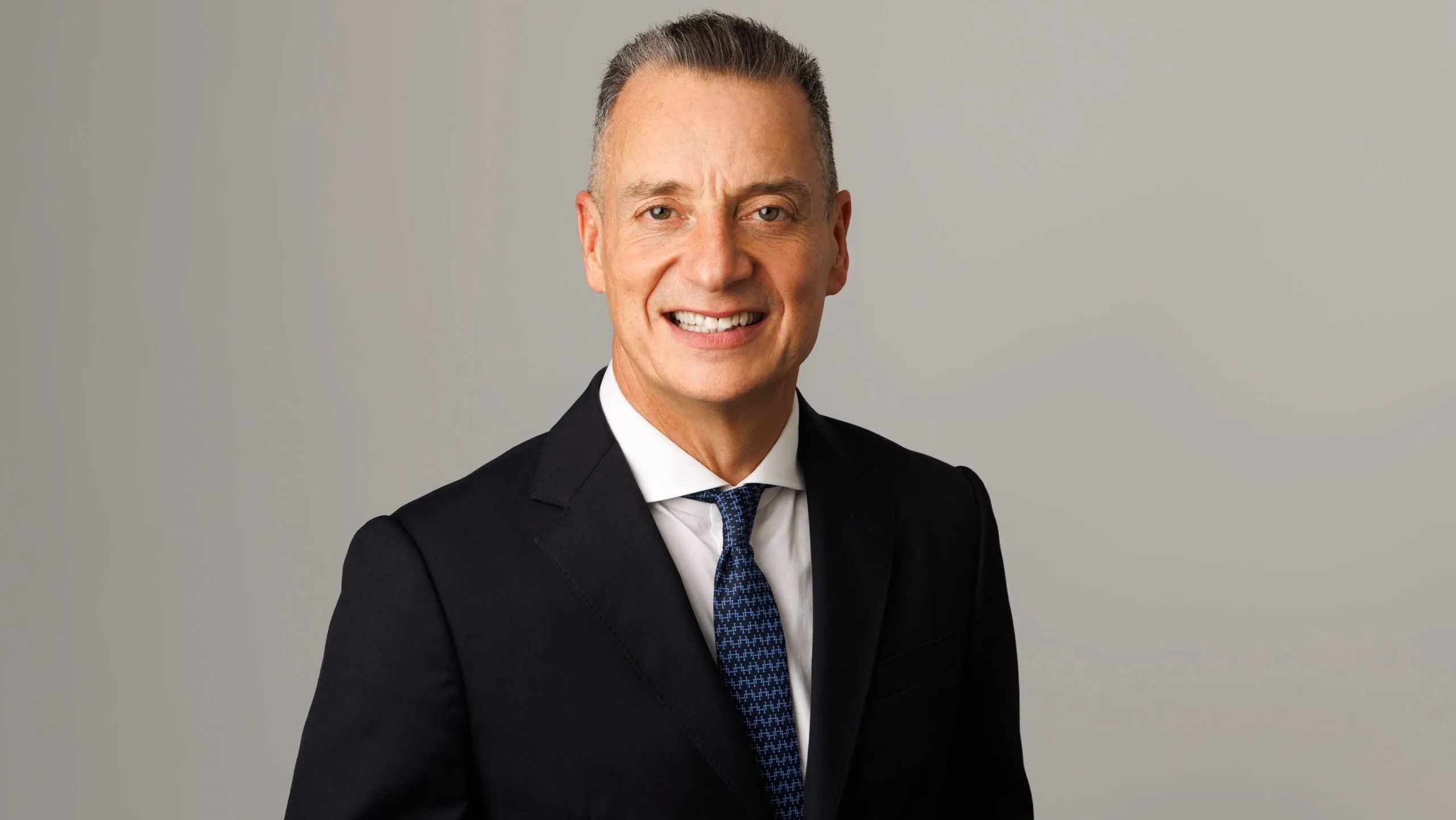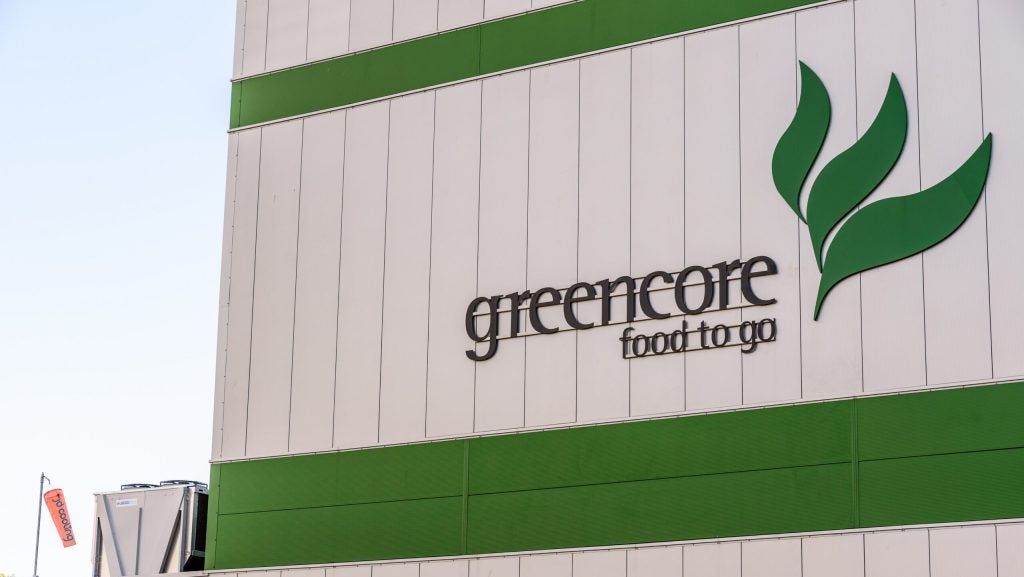

Dalton Philips upgraded Greencore’s profit roadmap this week after making further progress in getting the food-to-go and convenience foods business back into pre-pandemic territory.
Since becoming CEO of the UK-listed private-label supplier in 2022, Philips has introduced a three-pronged strategy dubbed ‘Horizon’ to restore operating profit and margins, while walking away from low-margin contracts.
Headway was evident in the “stabilise, rebuild and grow” objectives in Greencore’s first-half results to 29 March, with like-for-like revenue up 4.1% and other metrics also showing gains.
Most notable was the 5% increase in the adjusted operating profit outlook to £86-88m ($109-112m), a 200 basis-point margin progression and a drop in debt leverage to 1.4 times from as high as 2.1 times in the opening half of 2022.
It was not all plain sailing, as like-for-like volume growth was a meagre 0.5%, with pricing up 2.9% and inflation pressures from wages. Greencore also plans to close a UK soup factory at Kiveton, where the company operates two other sites for ready meals and quiche.
Just Food’s Simon Harvey chats with Philips to discuss the results and expectations for the second half.
Access the most comprehensive Company Profiles
on the market, powered by GlobalData. Save hours of research. Gain competitive edge.

Company Profile – free
sample
Your download email will arrive shortly
We are confident about the
unique
quality of our Company Profiles. However, we want you to make the most
beneficial
decision for your business, so we offer a free sample that you can download by
submitting the below form
By GlobalData
Simon Harvey (SH): What are you expecting from volumes in H2?
Dalton Philips (DP): Overall, the reality is the market is still pretty flat out there. It’s a difficult market, although you’re starting to see some signs of consumers starting to let go of some of the shackles of a very austere period in the last couple of years and starting to experiment a little bit more and be a little bit braver in terms of what they purchase.
Overall, H1 volume was up 0.5% in like-for-like terms, versus the market being down 0.7%. We were encouraged by that. Sandwiches, our core business, was up 2.5% and the overall sandwich market was only up 0.3%.
The other big engine for us is ready meals, up 1.7% against a 1.9% negative for the market.
SH: What about profit margin progression through H2. Do you have an end target?
DP: We’ve been deliberately vague on that to the extent that what we’ve said is we want to rebuild our overall levels of profitability back to the pre-pandemic levels.
We had targeted FY-26 to do that. With today’s upgrade, that brings that nearer but we’re not giving guidance in terms of the profitability margin.
What we are saying is, for our overall level of profitability this year, we’ve upgraded that from the current consensus level. It’s essentially a 5% upgrade.
SH: I guess you expect an acceleration in margin recovery as you move through the busier second half?
DP: In absolute levels, you’re absolutely right, we make twice as much in the second half as we do in the first half. Our split is essentially 35-65 in terms of profitability.
We’ve got off to a good start. April was tricky, weather-wise. May has been an excellent month. We’re going to be up against a difficult June from last year – you’ll remember how good that was but for the rest of last year the summer was a bit of a washout.
As you can see from that upgrade, we’re feeling quite confident. I don’t know the last time Greencore did an upgrade but it’s going to be many, many years.
In parallel to that, we’re doing a share buyback. We had done a share buyback of £50m over two years, which finished earlier this year. We’re now doing a share buyback of £50m in the next 12 months. And we are likely to start a dividend at the end of this year.
SH: Is inflation now behind you, in terms of the need for further pricing?
DP: Material and packaging have come down, and in many cases have been deflationary. In many cases, prices are actually below last year on the material side.
People and overheads are still up quite considerably over last year. The national living wage story also feeds into overheads and other costs. Net, there’s still inflation in the market. Consumers are expecting prices to drop. That’s not the case. They’re just not rising as quickly as they were.

If you index back in our categories, back to the pre-inflationary cycle, prices are still 33% higher than they were in April 2021.
It’s always an arm wrestle with our retail partners. We do everything we can to mitigate inflation, wherever we can. But the national living wage is an industry-wide phenomena and we’ve been having very adult conversations with our retail partners on that.
SH: Will the closure of the Kiveton soup plant lead to job losses?
DP: We’ve just finished consultations. We will consolidate from two soup plants to one. These are always difficult decisions from an efficiency point of view. It’s going to improve efficiency by about 16%.
We were quite clear last year that each site has to cover its cost of capital and when sites don’t, we’re going to have to take a long hard look.
It’s about 10% of the overall population that will be displaced from Kiveton. We’ll do everything we can, where possible, to reallocate them into roles in our ready meals or our quiche facilities but unfortunately the actual soup plant per se will have to close. It’s going to happen over the summer.
We’ve just picked up a very material [ready-meals] contract with Aldi, so from September, we’ll be supplying Aldi with ready meals out of our Kiveton site.
SH: How much is the ready-meals contract expected to bring in?
DP: We don’t publish the actual volumes. Aldi wouldn’t be happy with us if we did that but it’s a very material piece of business. It will take that Kiveton site, which has been operating at around 60% capacity, up to essentially 95%.
We’ve got nine categories essentially that we operate in – sandwiches, sushi, salads, sauces, etc. And over the last six months, we’ve created category strategy teams.
We’ve got nine teams working on each category to ensure that there’s the appropriate focus on each category in terms of what needs to be done in terms of ensuring that they get back to peak levels of profitability, pre-pandemic levels of profitability.
And this is an example where with soups, we’ve had to do something quite difficult. Ready meals are a very different focus. That’s been an absolute growth focus.
SH: Does the soup decision have anything to do with consumer traffic still being down?
DP: It’s a difficult market. You’re absolutely right. It’s not a growing category. We’ve obviously taken the choice to consolidate that but other parts of the business are growing strongly.
There’s definitely a sense now of people starting to treat themselves a little bit more
That whole premiumisation and the premium meal deal is now growing by 90%. It’s off a very small base but, as you think about consumer trends and what’s going on there, there’s definitely a sense now of people starting to treat themselves a little bit more.
Clearly a polarisation – you’ve still got people who are very focused on value. But every so often we’re seeing those consumers saying no, I’m going to treat myself today on something affordable.
SH: Is Greencore already in stage three of the Horizon strategy?
DP: We always thought of them as going in parallel. Horizon is very much around rebuilding margins and getting back to pre-pandemic levels of profitability. That’s all the current work but, in parallel, we recognise that longer term, we need to look at the growth engines, and that’s what we call Horizon three.
We have stood up a small focus team to look at that, and clearly, we’re looking at growth opportunities. We haven’t done anything specific yet… but we’ll be looking at channel expansion. We’re only really in retail and convenience today.
We’re not for example in foodservice. We’re not in DTC. We have no intentions yet in going into any of those. We’re just looking now. Are there categories that we’re currently in that we need to double down in further or other complementary categories?
In terms of geographic, we used to be in the US. It’s not for now, going into other geographies. There’s so much opportunity just doing what we do better today in the UK before we would ever contemplate going abroad.
SH: How has demand played out for the vegan and health categories launched last year?
DP: Nothing material to share. It’s still quite a small part of the market. I think it really got challenged through the cost-of-living crisis. In terms of premiumisation and people prepared to experiment a little bit more in health, I think all of those tailwinds are going to support this category.
You’ve seen vegan move very much back into the main category. In many cases, it’s not even flagged as vegan per se. I think health is probably going to be more important than straight vegan as a range.
About 65% of the UK population are deemed overweight or obese. As real wages are starting to increase ahead of inflation and people have got a few more pennies in the pocket, they are prepared to spend a little bit more now on healthier and more sustainable diets.

